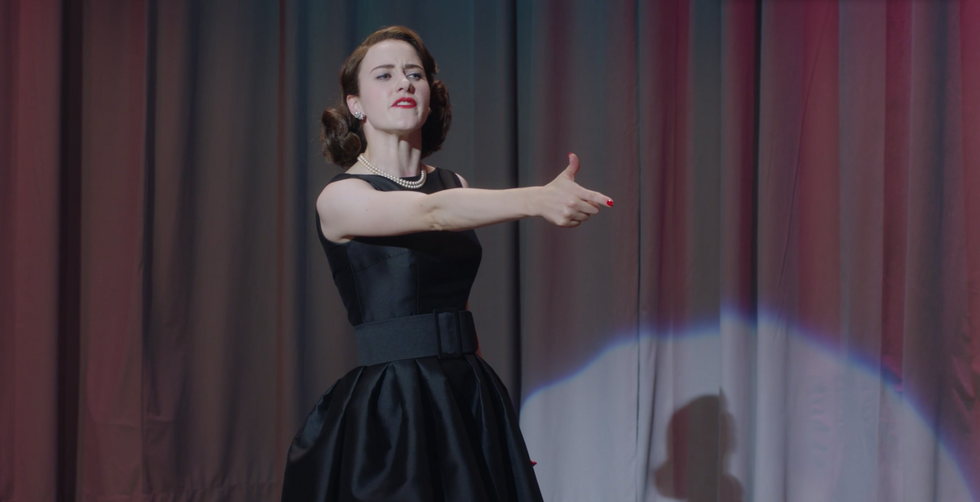Many have sung the praises of the hilariously bright and light-hearted comedy, The Marvelous Mrs. Maisel, which has now won three Golden Globes and five Emmys for its spectacular cast and general brilliance. In Mrs. Maisel, Rachel Brosnahan plays a spunky Jewish housewife in the 1950s whose husband leaves her for his secretary. Miriam "Midge" Maisel recovers from the loss by throwing herself into the world of stand-up comedy, backed by her manager, Susie Myerson, played by Alex Borstein.
Of course, what really pushes a show from "great" to "award-winning" isn't just the splendid acting of its leads, but the chemistry and strength of the whole cast put together. Season 1 of Mrs. Maisel covered Midge's entrance into comedy, but Season 2 was a whole new ball game. In the second season, we see Midge truly go after her dreams, while simultaneously managing her complex family life, including conflicts between her parents and with her husband, Joel. For me personally, it's the family that really makes the show so remarkable, as well as the incredibly Jewish way in which they choose to handle events in their lives.
The reason that I've become so attached to the Maisels and Weissman's ultimately lies in this exact unapologetic Jewishness of the entire show. There have been a great many television series to host Jewish characters (we're lucky in that sense), but it's rare that the nature of a show itself takes on our culture. Rather, Jewishness seems to be a sort of tack on to a character, but never a part of their larger life. Sure, Monica and Ross Geller celebrated Hanukkah, but you never see Friends make a good joke about the frustrations of having a Jewish mother, although the openings were there. A lot of this may seem to stem from the concern that watchers just won't "get it," but Mrs. Maisel doesn't care.
The great thing about Mrs. Maisel is, first and foremost, that it makes the jokes other shows dared not to. When Midge asks her future fiancé, Abe, if he is cold, he responds, "I'm a man, I'm a Jew, I suffer." When Joel and his father go to the bank, Moishe makes a big deal about Jews not using banks, proceeding to ask multiple strangers as to whether or not they are Jewish. In one of her sets, Midge jokes about the dangers of Jewish mothers roaming the earth in the midst of an apocalypse.
The funniest thing about all of these jokes is that they are built upon the most classic form of Jewish humor that most of Hollywood has been afraid to use. The dry, satirical, self-deprecating ability to laugh at yourself and your entire culture is trademark Jewish, and Mrs. Maisel knows that. Rather than worry that we'll be offended, Amy Sherman-Palladino has taken a chance on Jewish viewers, and she's given us a show that epitomizes our very way of life—quick-witted, ironic, and frankly, hilarious. We don't take ourselves too seriously, and Mrs. Maisel knows that and capitalizes upon it to create a series we'll all love.












